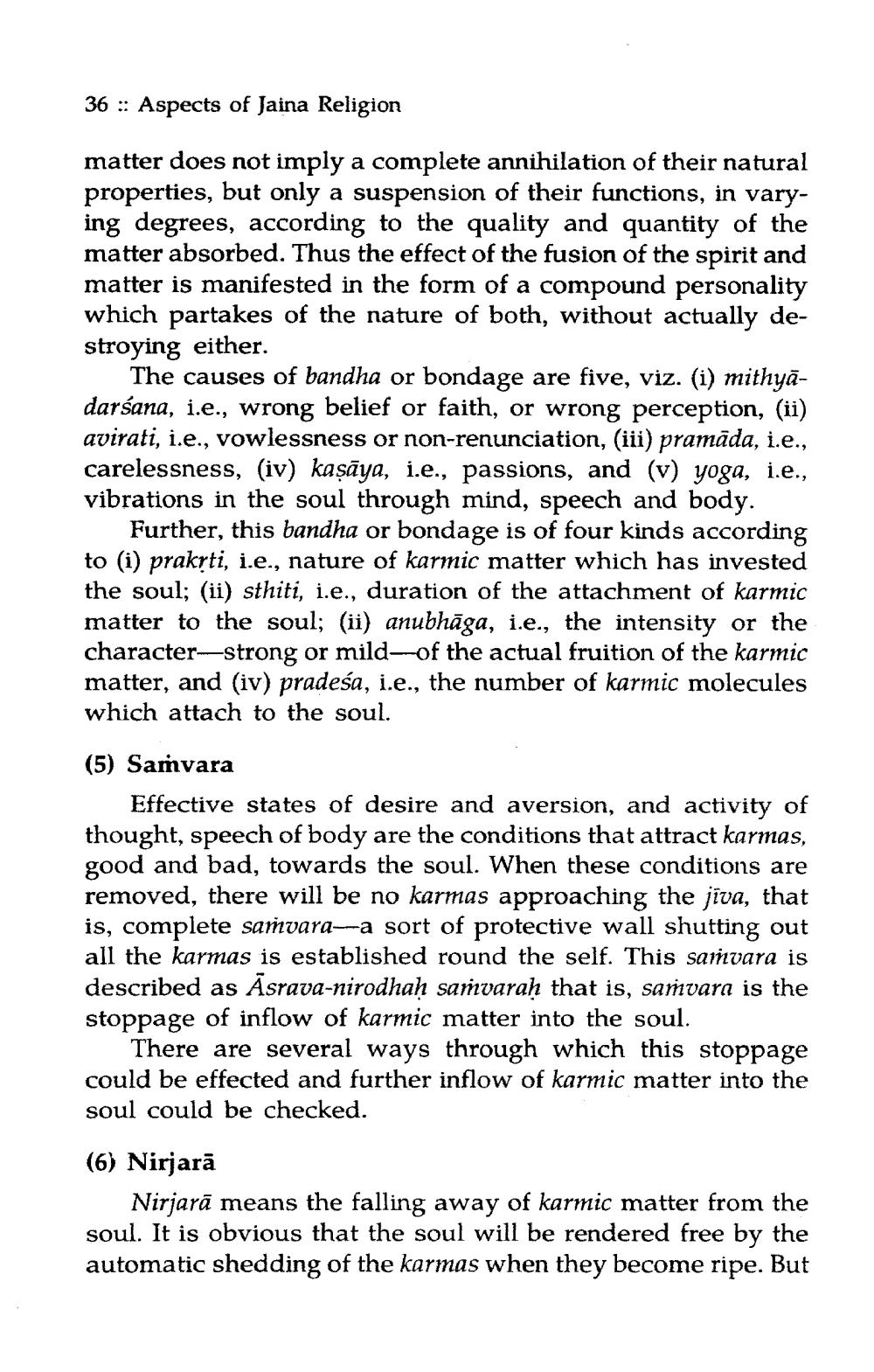________________
36 :: Aspects of Jaina Religion
matter does not imply a complete annihilation of their natural properties, but only a suspension of their functions, in varying degrees, according to the quality and quantity of the matter absorbed. Thus the effect of the fusion of the spirit and matter is manifested in the form of a compound personality which partakes of the nature of both, without actually destroying either.
The causes of bandha or bondage are five, viz. (i) mithyadarśana, i.e., wrong belief or faith, or wrong perception, (ii) avirati, i.e., vowlessness or non-renunciation, (iii) pramāda, i.e., carelessness, (iv) kaşāya, i.e., passions, and (v) yoga, i.e., vibrations in the soul through mind, speech and body.
Further, this bandha or bondage is of four kinds according to (i) prakrti, i.e., nature of karmic matter which has invested the soul; (ii) sthiti, i.e., duration of the attachment of karmic matter to the soul; (ii) anubhāga, i.e., the intensity or the character-strong or mild-of the actual fruition of the karmic matter, and (iv) pradeśa, i.e., the number of karmic molecules which attach to the soul.
(5) Samvara
Effective states of desire and aversion, and activity of thought, speech of body are the conditions that attract karmas, good and bad, towards the soul. When these conditions are removed, there will be no karmas approaching the jiva, that is, complete saṁvara--a sort of protective wall shutting out all the karmas is established round the self. This samvara is described as Āsrava-nirodhaḥ samvaraḥ that is, samvara is the stoppage of inflow of karmic matter into the soul.
There are several ways through which this stoppage could be effected and further inflow of karmic matter into the soul could be checked.
(6) Nirjarā
Nirjarā means the falling away of karmic matter from the soul. It is obvious that the soul will be rendered free by the automatic shedding of the karmas when they become ripe. But




